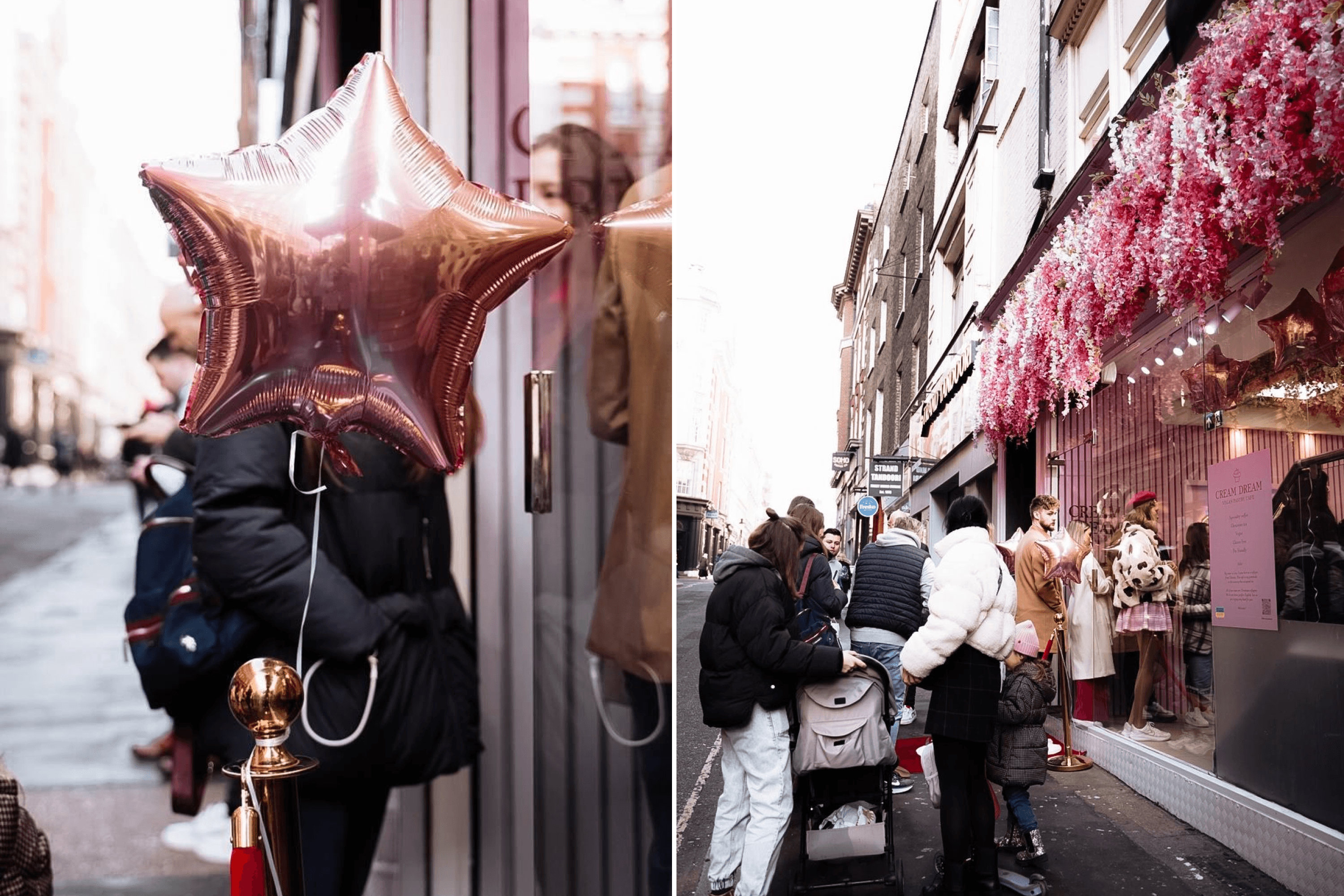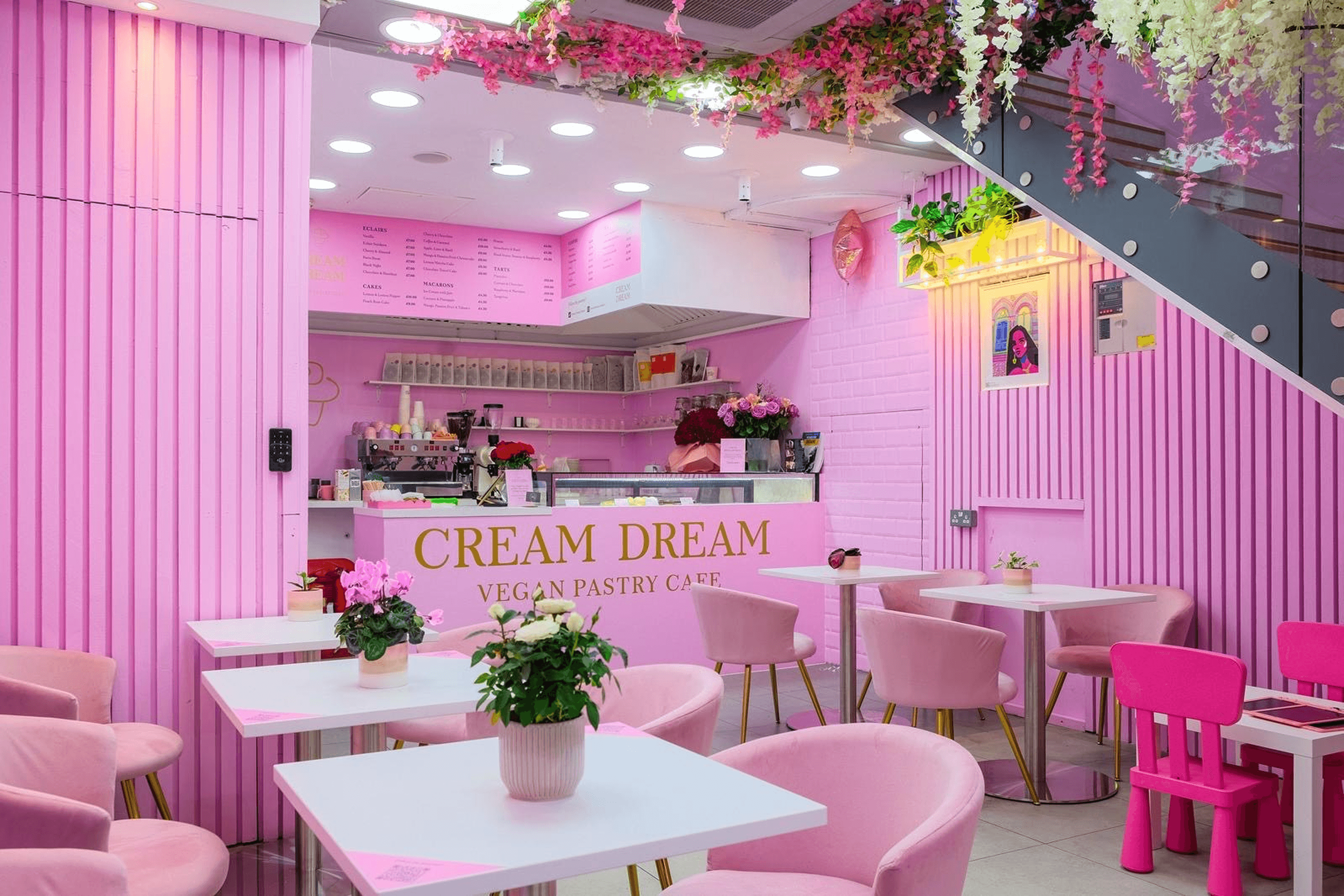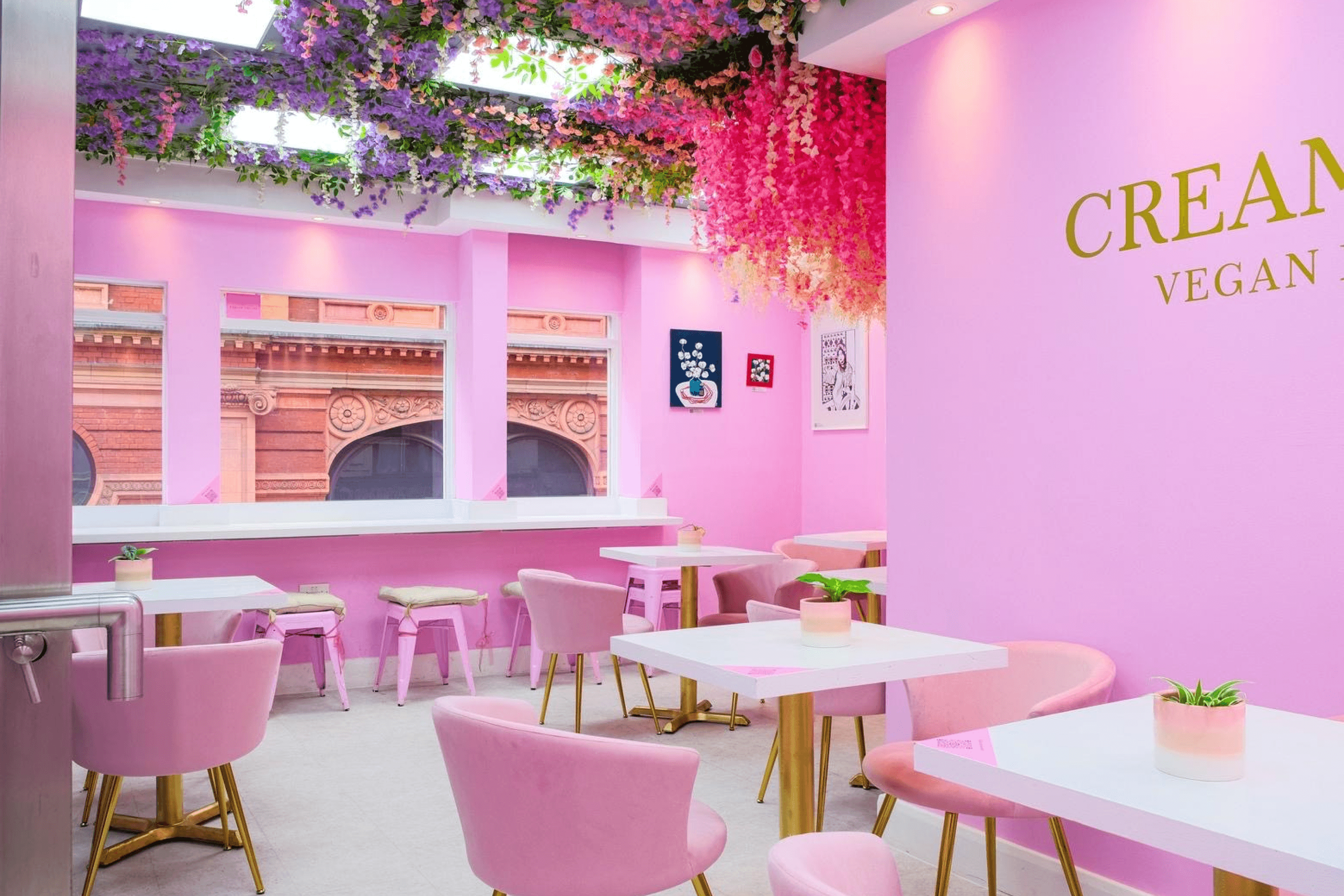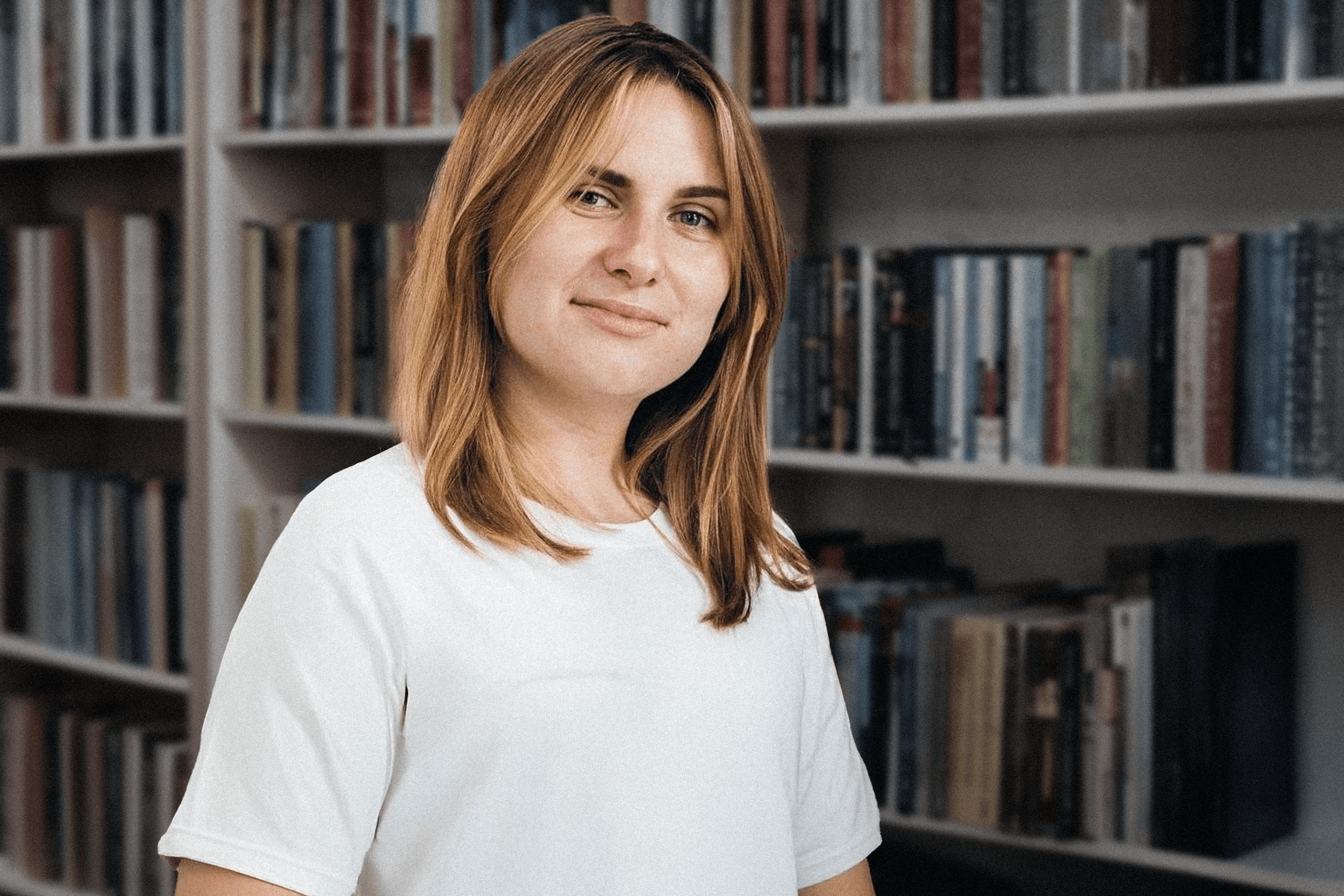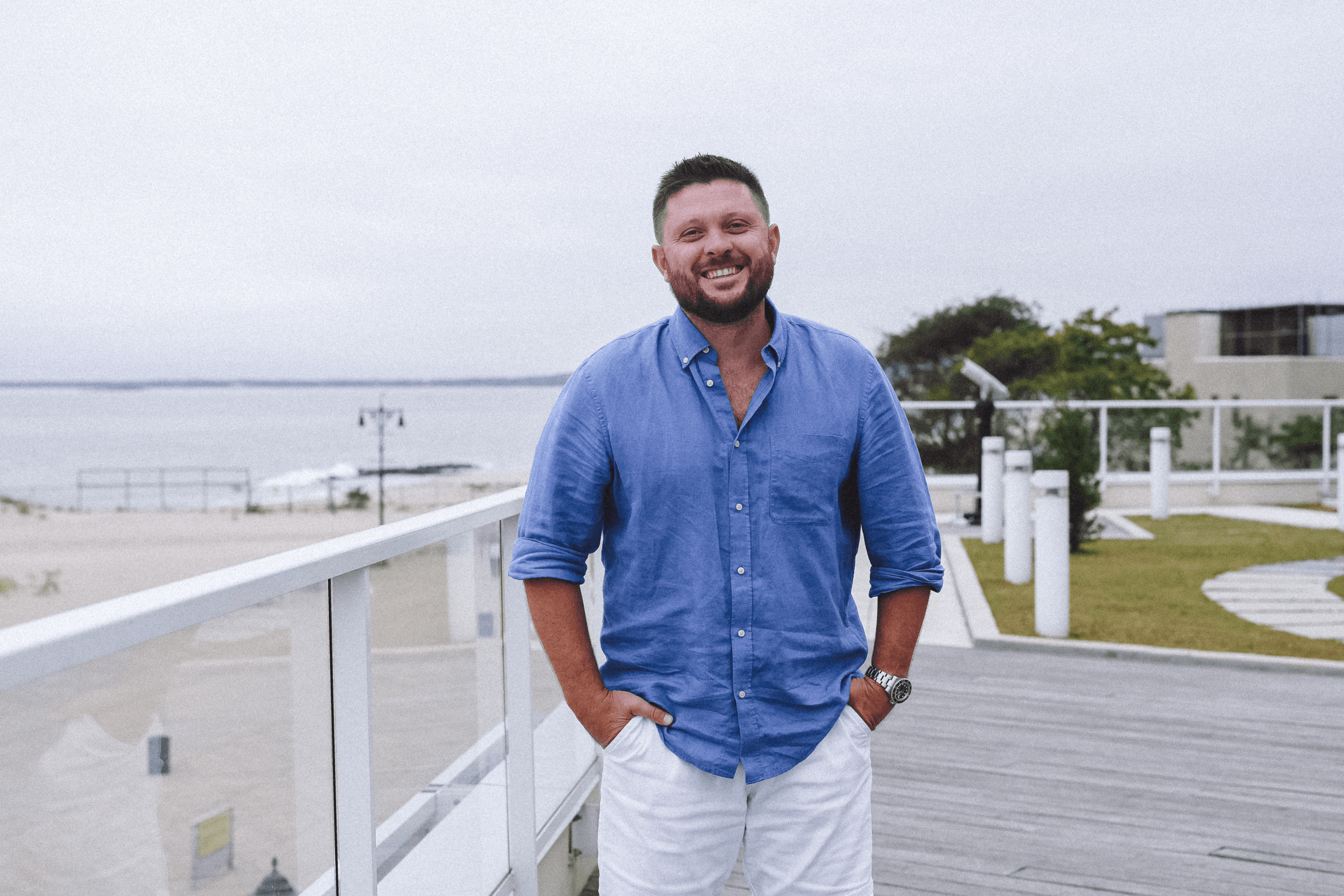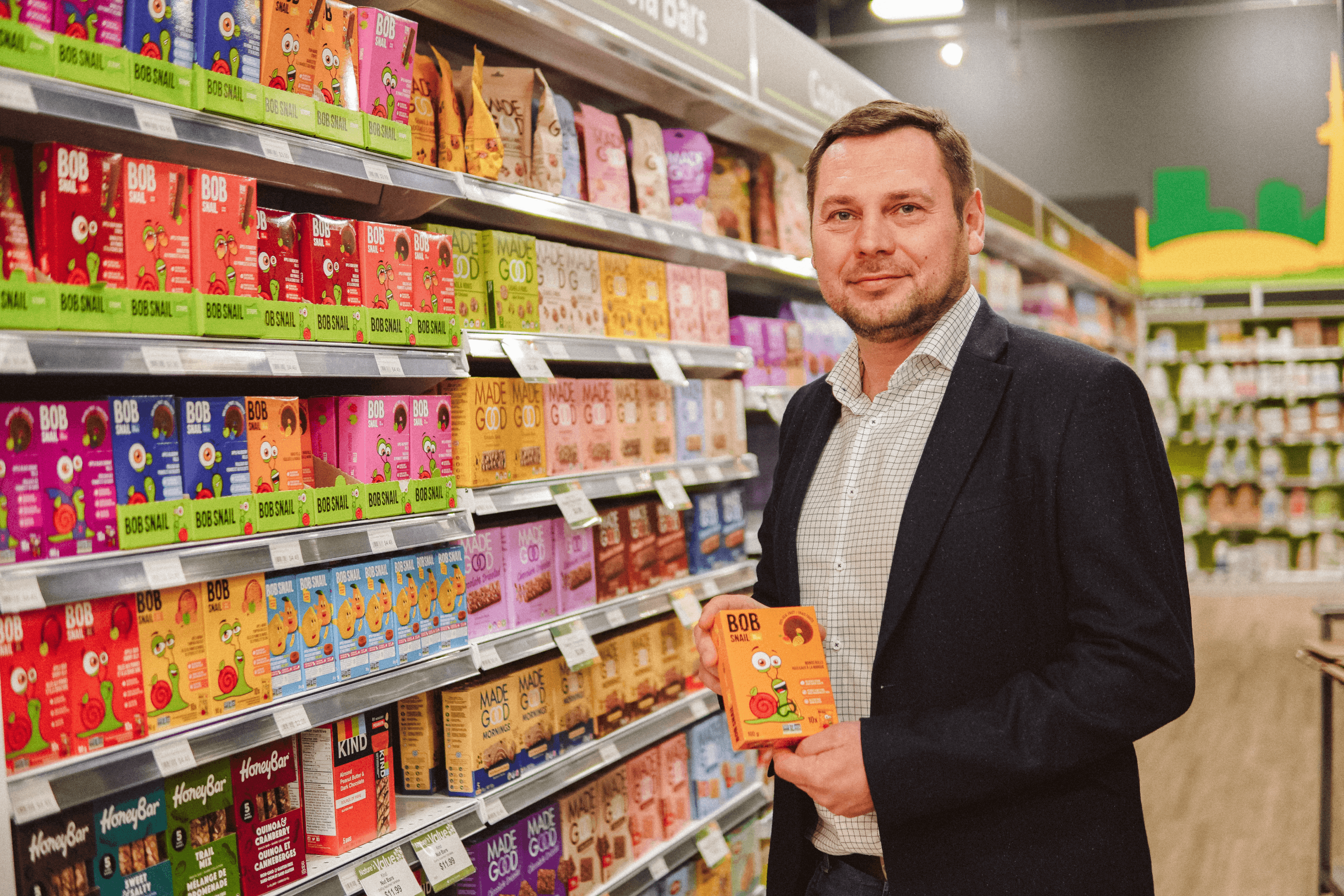A 25-year-old Ukrainian entrepreneur Yelyzaveta Tataryna was accustomed to hardship from an early age. Raised in a working-class family in an industrial town, she started working young and dreamed of starting her own business. She was on the path to success having bought herself a flat in Kyiv, but in October 2022, the war forced her to leave Ukraine.
She arrived in London and was determined to pursue her long-held dream of opening an eco-friendly café. Liza found an investor from the U.S., gathered a passionate team, and brought her dream to life within a month. Throughout the process, she shared every step on Instagram, from refurbishing the space to crafting her first desserts. This helped her attract volunteers, build a strong team, and draw in customers. Here is Liza’s journey and the story of Cream Dream.
1
On Valentine’s Day two years ago, a new vegan café opened in London, near Covent Garden. A line of dozens of people stretched down the street, not only to get healthy desserts. They came to support its founder, a 23-year-old Ukrainian entrepreneur, Liza Tataryna.
A month before opening, Liza turned the café’s Instagram account into a behind-the-scenes reality show. She posted daily updates: painting tables and walls, hanging decorations, experimenting with new recipes. This way, Liza both attracted future customers and managed to build a team. Volunteers helped with renovations and interior design, while local artists donated their paintings to bring the space to life.
Cream Dream is located in a historic building that once housed a kebab shop. Liza says turning the rundown rental space into a welcoming café was a real challenge.
“I couldn’t afford a full-scale renovation, so I repainted the kebab shop tables white, ” Liza recalls. “Pink has always been my favourite colour, which is reflected in the walls and furniture. I wanted to create a space with a distinctly feminine touch. The artificial flowers, now a signature element of the café, weren’t just for aesthetics — they cleverly covered imperfections in the grey ceiling. Volunteers helped attach them to a fishing net.“
Today, the café’s facade is a sleek glass storefront framed by cascading artificial flowers. The interior resembles a scene from the Barbie movie — blush-toned plush chairs, dainty white tables, light-pink walls, a raspberry-coloured bar counter, and delicate floral arrangements adding the perfect finishing touch.
On the grand opening day, Cream Dream welcomed over 500 guests. The vegan, gluten-free desserts that Liza, owner and head pastry chef, had planned to last a week were sold out in just one night. People were reserving tables and even entire floors in advance, pre-ordering desserts for their special celebrations.
“It was absolute madness — but the best kind of madness, ” Liza says with a smile.
2
Yelyzaveta Tataryna was born on October 2, 1999, in Kryvyi Rih, a mid-sized industrial city in central Ukraine. She grew up in a modest household with her mother, grandmother, and younger sister. Her mother, a chief railway engineer, worked tirelessly, but money was always tight, just enough to cover the essentials. Determined to contribute, Liza started working at the age of 15 — after school, she would go to a call centre or hand out flyers on the streets.
From a young age, Liza heard from her mother and grandmother that she was special and carried that confidence with her. Her family supported her in all her aspirations. When she took an interest in photography as a teenager, they got her a camera; when she wanted to learn programming, her mother saved for months to buy her a powerful laptop. After high school, her family encouraged her to choose a solid career path, leading her to study physics and mathematics in Kyiv. There, she quickly became a faculty leader and even attended a political anti-corruption school.
Despite her many interests, Liza’s true passion had always been pastry-making. In the dormitory, she spent all her free time baking, refining recipes, and exploring healthier alternatives to traditional ingredients. Her fascination with veganism, intermittent fasting, and yoga, inspired her to create desserts that weren’t just delicious but also nutritious. Occasionally, friends and acquaintances placed orders for her treats on special occasions. It was then that she first started thinking about opening her own eco-friendly café.
“I’ve always been stubborn, which made working for someone else a challenge, ” Liza admits. “Deep down, I knew I was meant to be my own boss. Walking around Kyiv, I would stop by small cafés packed with customers. They truly inspired me.“

From her early university days, Yelyzaveta worked full-time at an IT company, where her salary grew in step with her increasing workload. Paid in cryptocurrency since she wasn’t officially employed, she worked tirelessly — five hours a day for six months straight with no weekends — while studying on a government scholarship and taking on culinary orders. She did save up enough to buy an apartment and build her savings. But the pace caught up with her, and burnout hit hard.
In February 2022, Liza finally allowed herself a break and flew to Bali, where the news of the war in Ukraine hit her. From Bali, she made her way to Poland, saw the massive queues at the borders, and instead of continuing, chose to stay and volunteer. For a whole month, he worked at a refugee center, sorting dozens of boxes of clothing, food, and medical supplies daily to be sent to Ukraine.
For months, Liza didn’t dare return to Ukraine. She traveled across Europe but never felt the urge to settle anywhere. So, in August 2022, she finally came back home to Kyiv. At first, she felt at home again and even got used to the daily air raid sirens. The idea of forceful leaving, even temporarily, was unthinkable. But within two months, Liza realized that the war was taking a serious toll on her mental health. Anxiety gripped her, and she could no longer rest or sleep without medication. By October 2022, she made the difficult decision to leave again.
3
Liza needed a place that wasn’t too far from Ukraine and where English was a primary language. The UK seemed like the right choice. As a newcomer with no work contract and bank account, she rented an Airbnb room in a London suburb for £80 a night. As her savings drained fast, she realized it was time to take action.
Back in Kyiv, Liza had seriously planned to open a vegan café on Kontraktova Square, with a carefully planned $50,000 budget that covered both startup costs and a safety cushion for the first few months. The café was meant to serve strictly vegan dishes, free from gluten and refined sugar. However, making this dream a reality in London required a larger budget. Adapting her business plan to the UK market, she secured funding from a US-based investor, landing a £200,000 loan at an annual 2.7% interest rate for 10 years, which is lower than the UK’s inflation rate. The main condition from her lenders was to ensure legally registered jobs for Ukrainians, even those without prior work experience.
Prime location in the heart of the city came at a steep price of £140,000 for a year’s rent. Another £10,000 went toward essential equipment, the same amount was spent on renovations, which Liza handled herself with the help of volunteers, only purchasing the raw materials. Working relentless 16-hour days, she managed to turn her vision into reality, opening Cream Dream in just a month.
Liza’s team is made up entirely of Ukrainians who fled the war, many of whom arrived with little to no English. Most had no experience in the food industry, so she trained them as pastry chefs and baristas — something she sees as her small way of giving back.
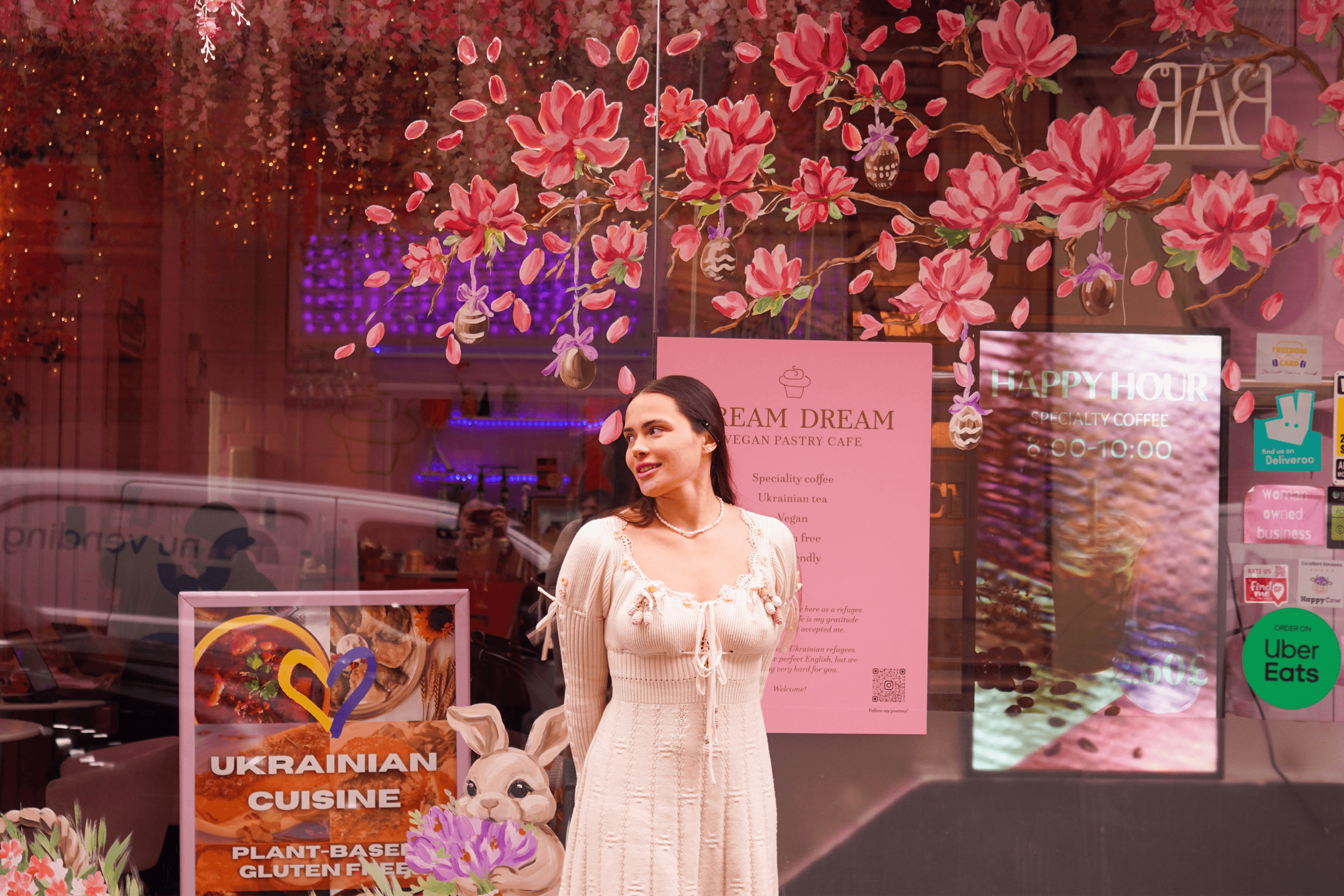
“The challenge is building a team that truly shares your values, ” says Liza. “Finding candidates was never an issue — I’d post a job on Instagram and receive up to 200 applications within hours, filling positions almost immediately. However, I kept facing ageism toward myself as I was the youngest in the team. And only now am I learning to let go of those who struggle with professional boundaries.“ Today, Cream Dream is a team of 15, though Liza aims to grow the staff to 30.
Liza positions her café as a safe space for women. For her, safety isn’t only about finding like-minded people and feeling secure, but also about economic independence. Nearly all her employees are women, paid fair wages under official contracts. The majority of those fleeing the war in Ukraine are women, with or without children, quite often with no English skills and not a lot of money. Here, those women can find a job, learn something new and have a chance to rebuild their lives.
Liza handled all issues related to permits and fines on her own, without any local assistance. One day, she received a £400 fine because someone had dumped empty meat and beer boxes near her café. Naturally, as a vegan establishment, her café had neither meat nor alcohol. She presented CCTV footage proving her team wasn’t responsible for disposing of those boxes, but the evidence was ignored. The court found her guilty, even though she wasn’t even notified of the hearing. In the UK, unpaid fines are often handed over to private agencies, and one day debt collectors showed up at her café, demanding immediate payment, and threatening to seize everything if she didn’t pay within four hours. With additional fees and penalties, the fine had grown to £2,000. To keep her business going, Liza had no choice but to pay.
Liza’s family remains in Ukraine. Her mother, a railway engineer, refused to leave and now carries on with her daily work from a bomb shelter. Her younger sister studied in the U.S. when the war broke out but decided to return to Ukraine and then joined Liza in London. Today, she helps run the café as a marketing specialist.
Colleagues in the restaurant business warned Liza that breaking even in London without a hefty marketing budget was impossible in less than 3 to 5 years. Yet, within just a year, Cream Dream managed to match its expenses with its revenue.
4
What Liza likes the most about her work is creating desserts. Her normal day starts with yoga, breakfast and reading emails, then she answers her mail and makes calls. After that, she heads to the café, where she personally develops new recipes or fine-tunes existing ones. Her desserts use healthy sugar substitutes like inulin probiotics, agave syrup, and maltitol. Liza stays true to her philosophy — serving guests only what she would eat herself.
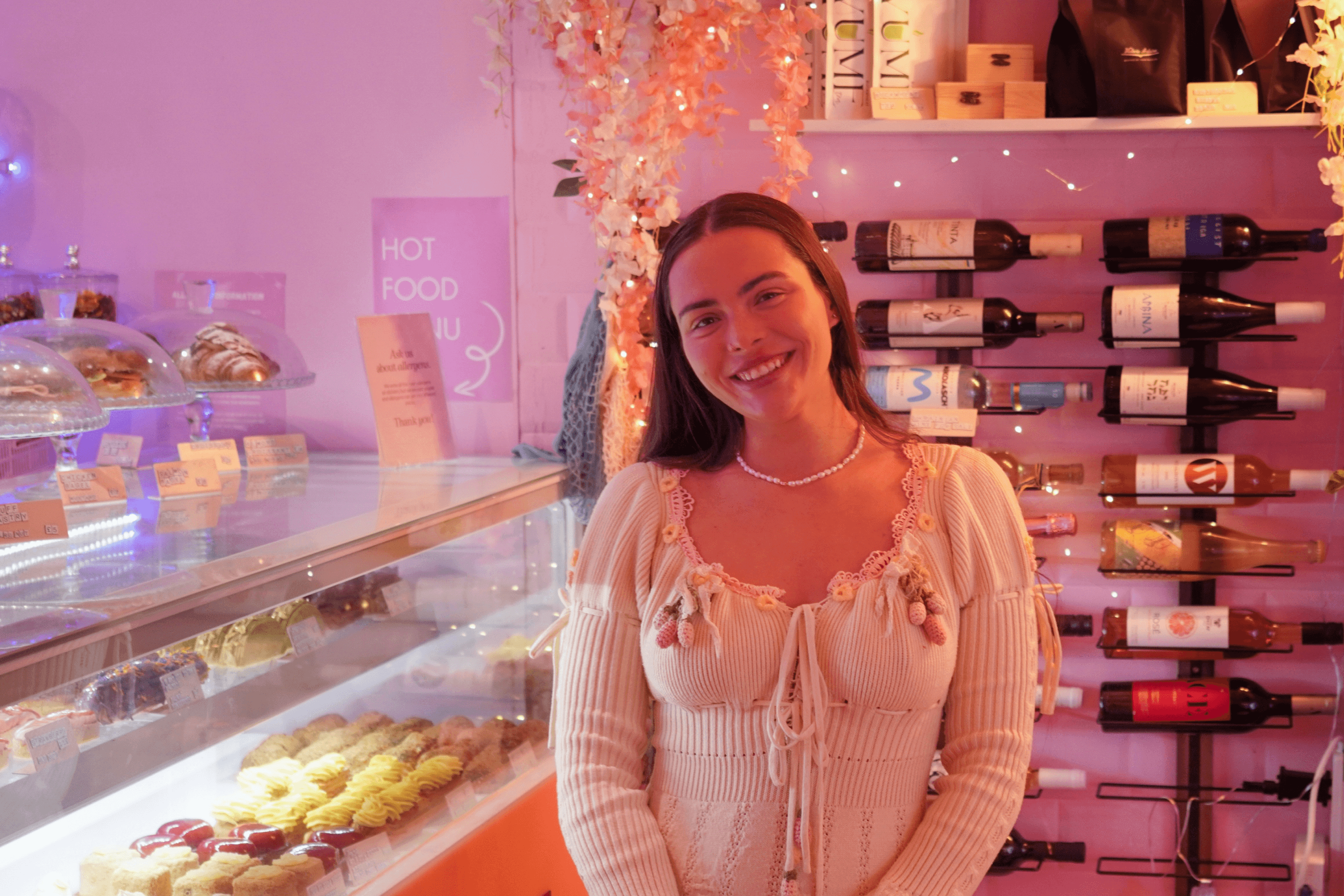
At first, the café operated solely as a pastry shop, but it has since expanded to include hot meals. Liza discovered a Ukrainian chef on Instagram who specializes in traditional dishes and invited her to a pop-up event in the café. The response was overwhelming. Due to the high customer demand, the café introduced an updated menu several times a week and got a new team member. Now, top-selling deruny (potato pancakes), zrazy (stuffed potato cakes), and varenyky (dumplings-like dough wrapped around sweet or savory fillings) are made gluten-free and are available daily. According to Liza, Brits love potatoes, and when they see “potato pancakes” on the menu, they can’t resist trying them.
Since the British have been supportive of Ukrainians, to show appreciation, Cream Dream serves coffee to police officers, firefighters, and healthcare workers for just £1. The café is also committed to helping Ukraine in a unique way. It collects used vapes, repurposing their lithium-polymer batteries for military use. These compact batteries can power and keep drones operational on the front lines.
Cream Dream actively participates in charity fairs and auctions, selling vegan desserts to raise funds for the Ukrainian Armed Forces. For example, the café once made 100 honey cakes for a fair, and all proceeds went toward military aid. On the anniversary of the full-scale invasion, the café donated its entire daily revenue, approximately £2,000, to support Ukraine’s defenders.
In the past two years, Cream Dream has grown into a vibrant hub for social and cultural events. Liza plans to open cafés in Kyiv and New York and expand the brand franchising worldwide. Investors from Qatar, India, and the U.S. have already shown interest, so she is starting to prepare her brand for future expansion.
Liza pays herself and her sister, who handles the café’s promotion, an average salary, reinvesting all profits into expanding and refining Cream Dream. Her ultimate goal is to establish the business in London as a self-sustaining enterprise, allowing her to one day return to Ukraine to live and continue her work.



